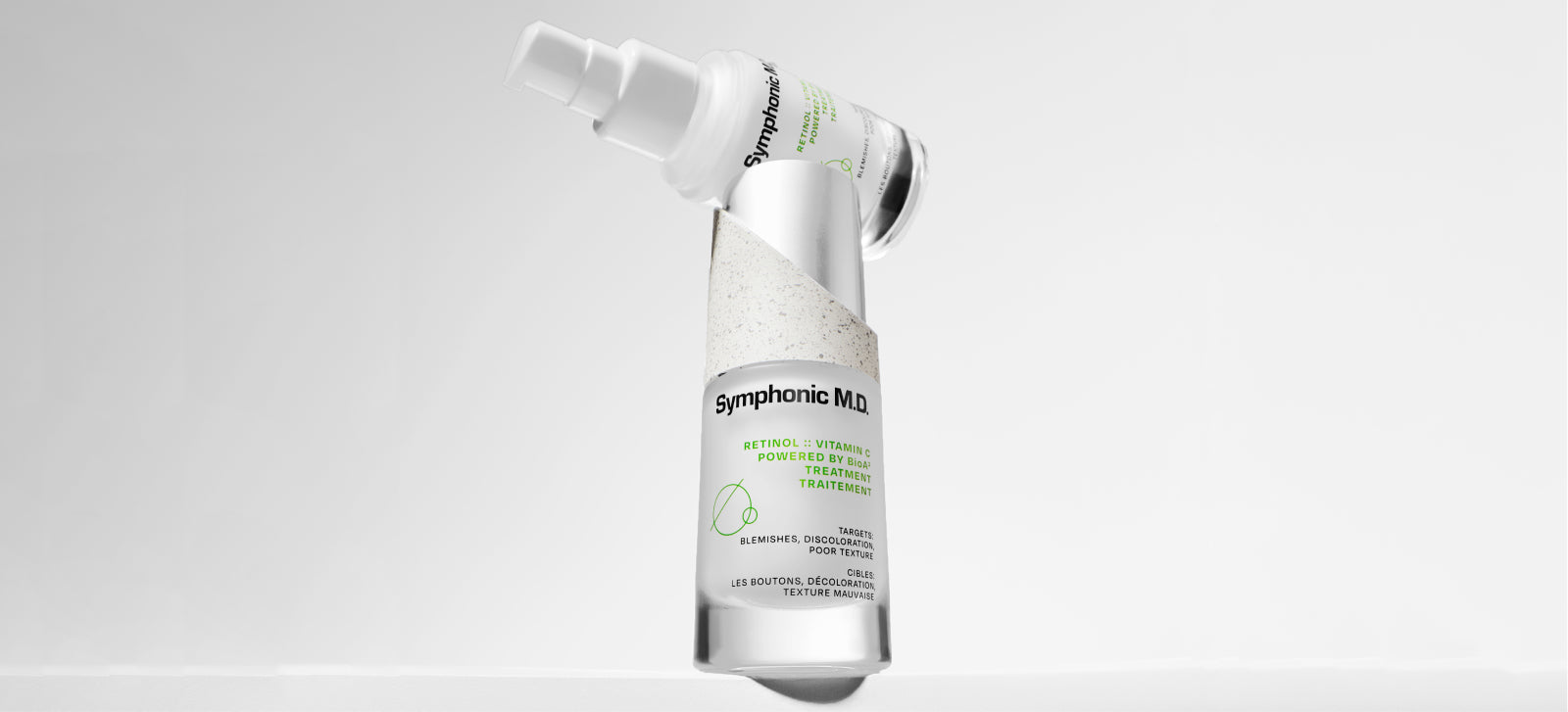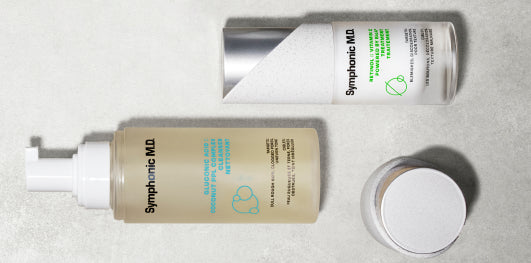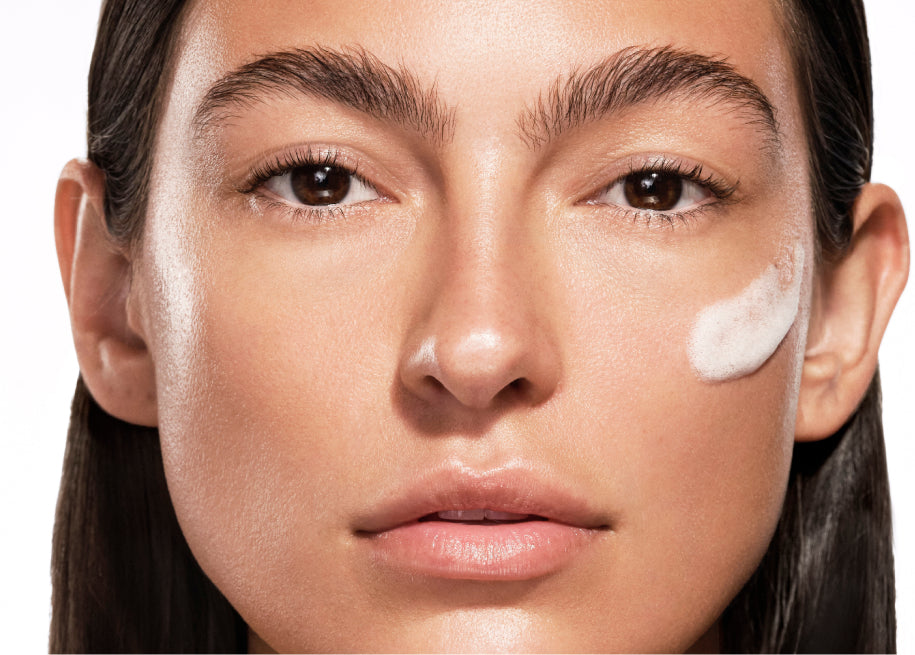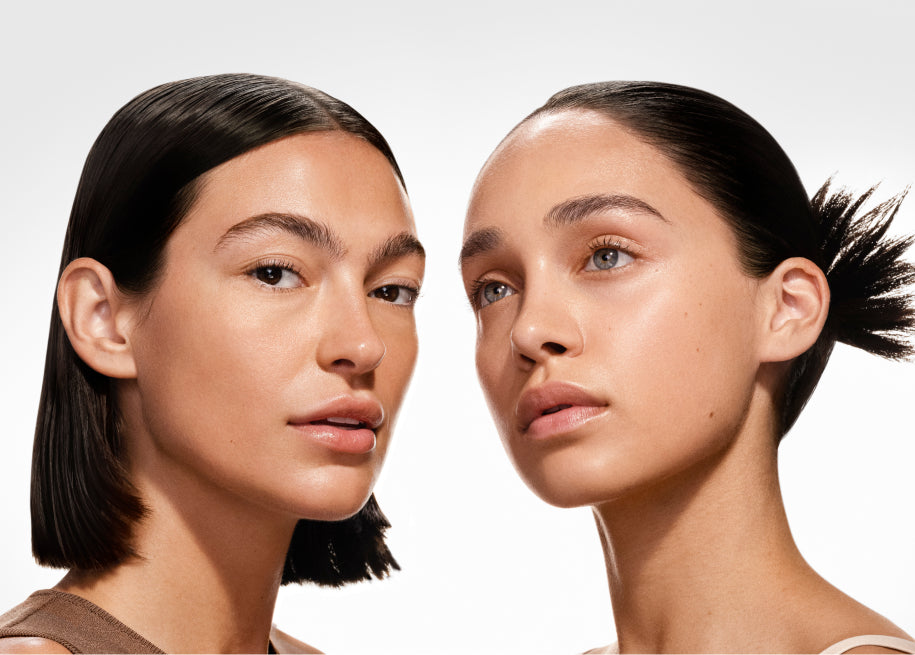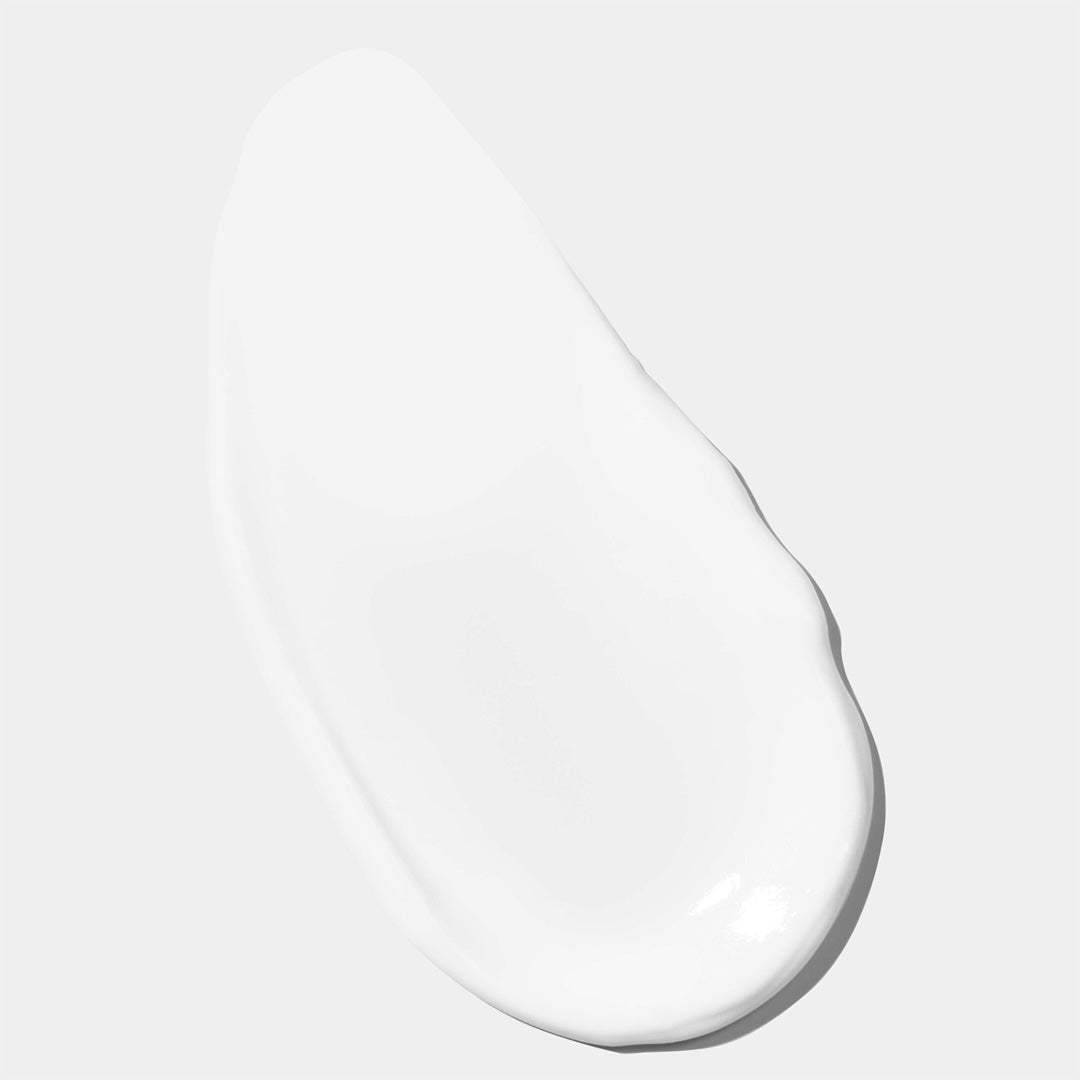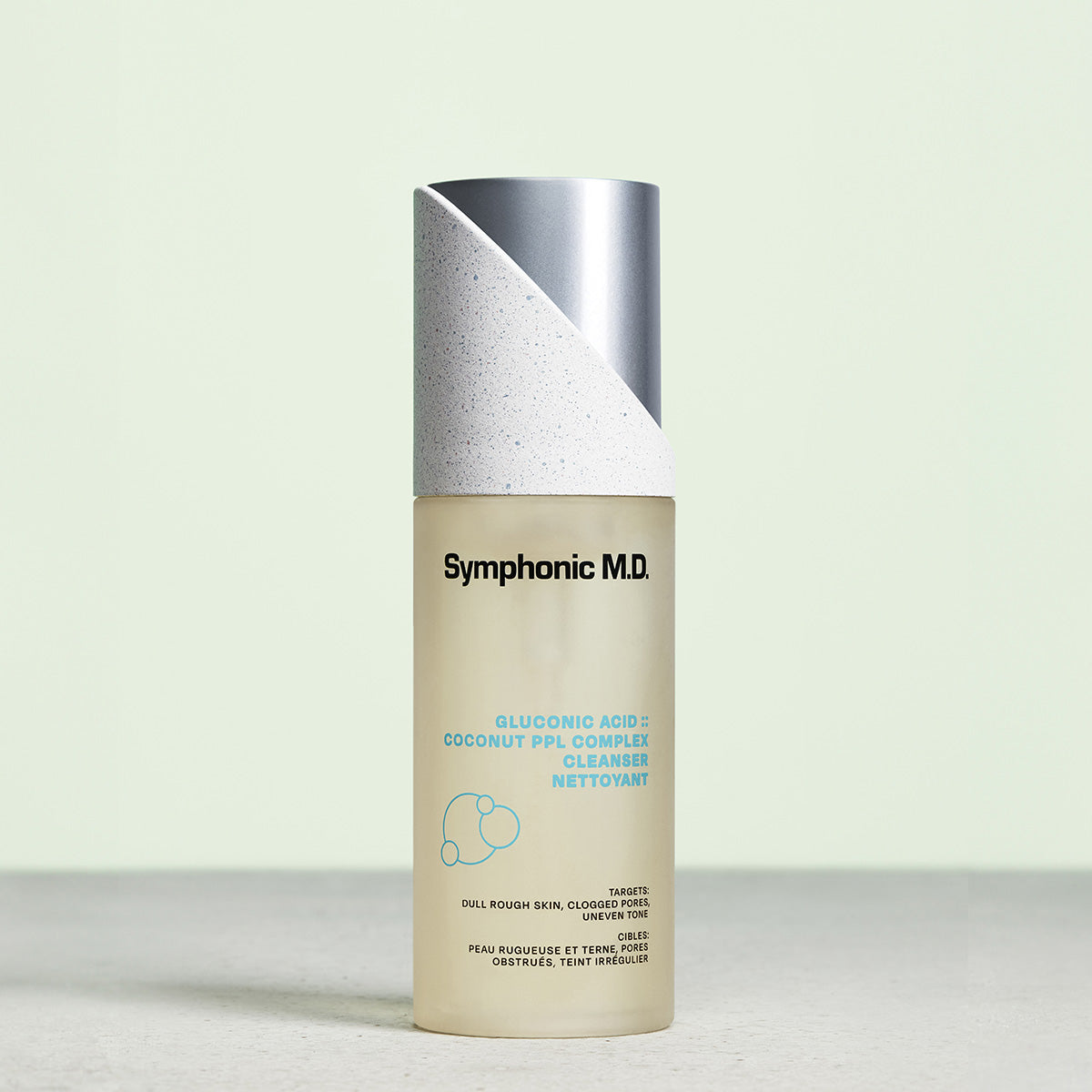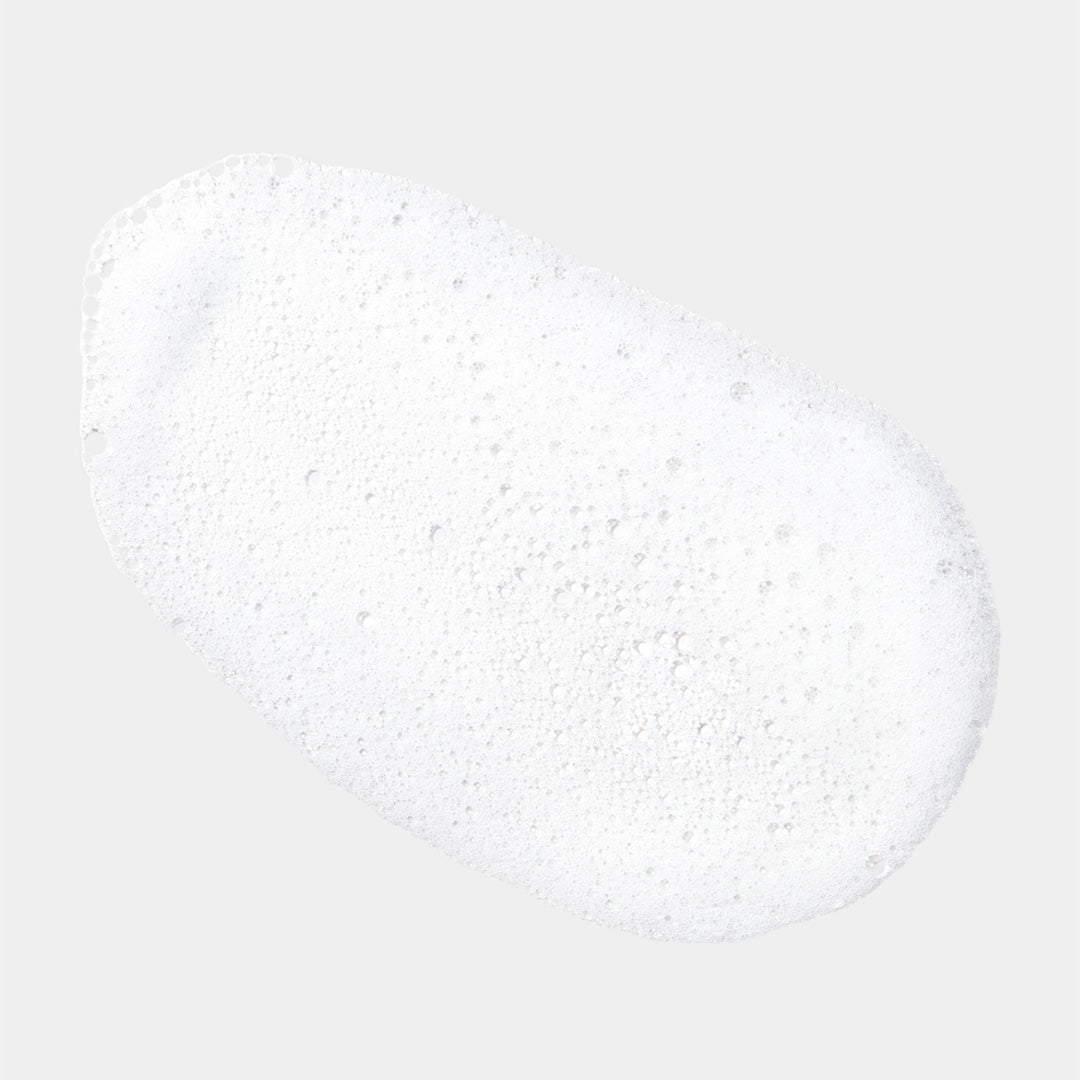Go shopping for skincare, and you'll see retinol and vitamin C all over the shelves. They've been hailed as miracle ingredients that can transform skin. But which one is better for your skin? How do you choose between retinol and vitamin C?
Find out how both vitamin C and retinol can help with different goals in your skincare routine.
What are retinol and vitamin C?
Retinol and vitamin C are what's known as "active ingredients". When you use a skincare product for a specific goal, the active ingredients work on your skin to make those changes.
Both are known as particularly powerful ingredients. But you'll get very different effects from retinol versus vitamin C.
What is retinol?
If you've ever searched for anti-aging skincare, you've probably heard of retinol, or related ingredients such as retinoids or retin-A.
Retinoids are a class of chemicals that have potent anti-aging effects. Retin-A and retinol are both types of retinoid, but retinol is the most well-known in skincare. It stimulates the skin to renew itself and stay smooth and firm.
Retinol is drawn from vitamin A. It's special because it's fat-soluble, which means your body can easily absorb it as part of a serum or moisturizer. However, it's also photosensitive and breaks down in sunlight — which means that retinol products have to be stored carefully, and they're best used at night.
Retin-A and retinol are both types of retinoid, but retinol is the most well-known in skincare.
What is vitamin C?
Vitamin C has anti-aging effects too, but it works differently from retinol. It's an antioxidant, which means it protects skin from molecules called free radicals. It can also fight infections and reduce allergic reactions.
In skincare, you'll also see vitamin C referred to as L-Ascorbic acid. It's exactly the same active ingredient, just with a different name.
What do retinol and vitamin C do for the skin?
Retinol and vitamin C can help your skin look younger and healthier. However, they work their magic in very different ways.
Retinol
Retinol improves your skin at the most fundamental level: by changing how your body makes skin cells.
When you use a retinol product, your body turns it into retinoic acid. The acid stimulates your skin to replace skin cells faster and produce more collagen. It clears away dead skin cells and built-up dirt and pollutants.
Result: younger skin cells, reduced scars and dark spots, and a plump, firm skin texture.
You might be wondering whether it would be more efficient to use retinoic acid straight away. Dermatologists have found ways to produce retinoic acid, and it's even available on prescription. However, it can have a very irritating effect on skin.
Retinol gets you all the benefits of retinoic acid without the severe side-effects. If you're concerned about skin irritation or dehydration, you can apply a moisturizer after using retinol serum — or pick a deeply hydrating retinol moisturizer instead.
The acid stimulates your skin to replace skin cells faster and produce more collagen.
Vitamin C
Vitamin C has two main functions: it protects skin from damage, and makes it brighter. That's why it's such a popular, multi-purpose active ingredient.
First and foremost, it protects your skin from free radicals from pollution and sun damage. As an antioxidant, it fends off skin damage and prevents the signs of aging from taking hold. It also promotes wound-healing by stabilizing the collagen in your skin, firming up its structure.
Vitamin C's skin-brightening power works by slowing down melanin production. Melanin is the molecule that makes skin darker. Vitamin C stops your body from producing so much tyrosinase — a key ingredient in melanin — to prevent hyperpigmentation.
When you apply vitamin C, it builds up a protective barrier of antioxidants in your skin. It's best applied during the day, so that it can shield you from free radicals, and usually works most effectively as a serum.
The differences between retinol and vitamin C
That's a lot of skincare info, so let's pause and recap.
Both retinol and vitamin C can improve skin tone, smooth out skin texture, and make skin brighter. However, there are essential differences, too.
Here are the main differences when you compare vitamin C versus retinol:
|
Retinol |
Vitamin C |
|
Retinol is available in different concentrations and variations, such as Retin-A and prescription retinoids. |
Vitamin C is always just … vitamin C. However, the amount of vitamin C in a product will have an impact on its effect. |
|
Retinol only affects a few aspects of your skin, but it's one of the most powerful active ingredients you can get without a prescription. |
Vitamin C has a long list of benefits, and medium strength. |
|
Retinol protects you from some signs of aging, but it breaks down in sunlight — and can cause sunburn! |
Vitamin C protects your skin from UV rays, pollution, and other damage — all while treating the signs of aging. |
Which is better, retinol or vitamin C?
Vitamin C and retinol are both important elements in your skincare routine. However, if you're forcing us to choose between retinol and vitamin C … then we'd pick both.
What are the benefits of retinol and vitamin C?
Retinol and vitamin C can both contribute to younger, fresher skin with plenty of collagen. They also have unique benefits.
Retinol benefits
Here are the main ways that retinol benefits your skin:
- Reduces fine lines, wrinkles, and enlarged pores by boosting collagen production and cell renewal.
- Treats acne by unclogging pores and reducing inflammation.
- Fades dark spots by replacing skin cells faster.
- Makes aging skin plumper and more elastic, thanks to increased collagen.
- Improves skin texture and tone for a smooth, glowing look.
Wondering how long it’ll take to see the benefits of using retinol? Read all about how retinol works, and how long you’ll have to wait for amazing skin in our guide Retinol Timeline: How Long Does Retinol Take To Work?
Vitamin C benefits
Vitamin C has 5 key beneficial effects on your skin:
- Increased collagen production. You'll see fewer fine lines and wrinkles, and more elastic, resilient skin.
- Brighter skin tone. Vitamin C reduces dark spots and hyperpigmentation, making skin tone more even.
- Protection from sun damage. Vitamin C's antioxidant effect protects your skin from the free radicals which cause damage from UV rays. If you're already sunburnt, it can also reduce redness and inflammation.
- Hydrated skin. Vitamin C strengthens the skin barrier function to hold moisture inside. No more dry and flaky patches!
- Smoother skin texture. Just like retinol, vitamin C can also boost cell turnover to fade acne scars and blemishes.
When you apply vitamin C, it builds up a protective barrier of antioxidants in your skin.
Can retinol and vitamin C be used together?
Yes! You can use vitamin C and retinol together.
If you don't want to decide between retinol vs. vitamin C, there is a third option … combining them in your skincare routine. They'll work together to keep skin young, boost collagen, and reduce dark spots and lines.
For most products, dermatologists recommend using vitamin C in the morning and retinol at night, and following serums with a nourishing moisturizer.
Benefits of using retinol and vitamin C together
Vitamin C and retinol are both powerful ingredients — and, best of all, they work well together. Vitamin C's antioxidant protection combines with retinol's cell-renewing magic to make your skin smoother, brighter, and clearer than ever.
The side effects of using retinol and vitamin C together
Most vitamin C and retinol products are serums, because serums have a higher concentration of active ingredients. However, that means more risk of a reaction — especially if you layer multiple products.
You'll need to integrate retinol, in particular, slowly and gently into your routine. If your skin is especially sensitive or reactive, then you might prefer to use moisturizer instead of serums.
Vitamin C and retinol products can also be expensive. However, depending on your skincare concerns and goals, you might consider them worth the cost. Many people see their skincare products as an investment in self-care.
How long should I wait between retinol and vitamin C?
If you plan to layer retinol and vitamin C in your skincare routine, you'll need to build in time for each product to absorb. Ideally, you should wait 30 minutes after applying each active ingredient, before you layer anything else over the top.
However, there is also a way to eliminate this wait. Here at Symphonic M.D. we’ve combined these two powerhouse ingredients into one in our Retinol :: Vitamin C Powered by BioA3 Treatment. Our revolutionary moisturizer allows you to reap all the benefits of both retinol and vitamin C at the same time.
This anti-inflammatory serum powered by BioA3 targets blemishes, tone, and texture — helping to clear bacteria and smooth skin without clogging pores.
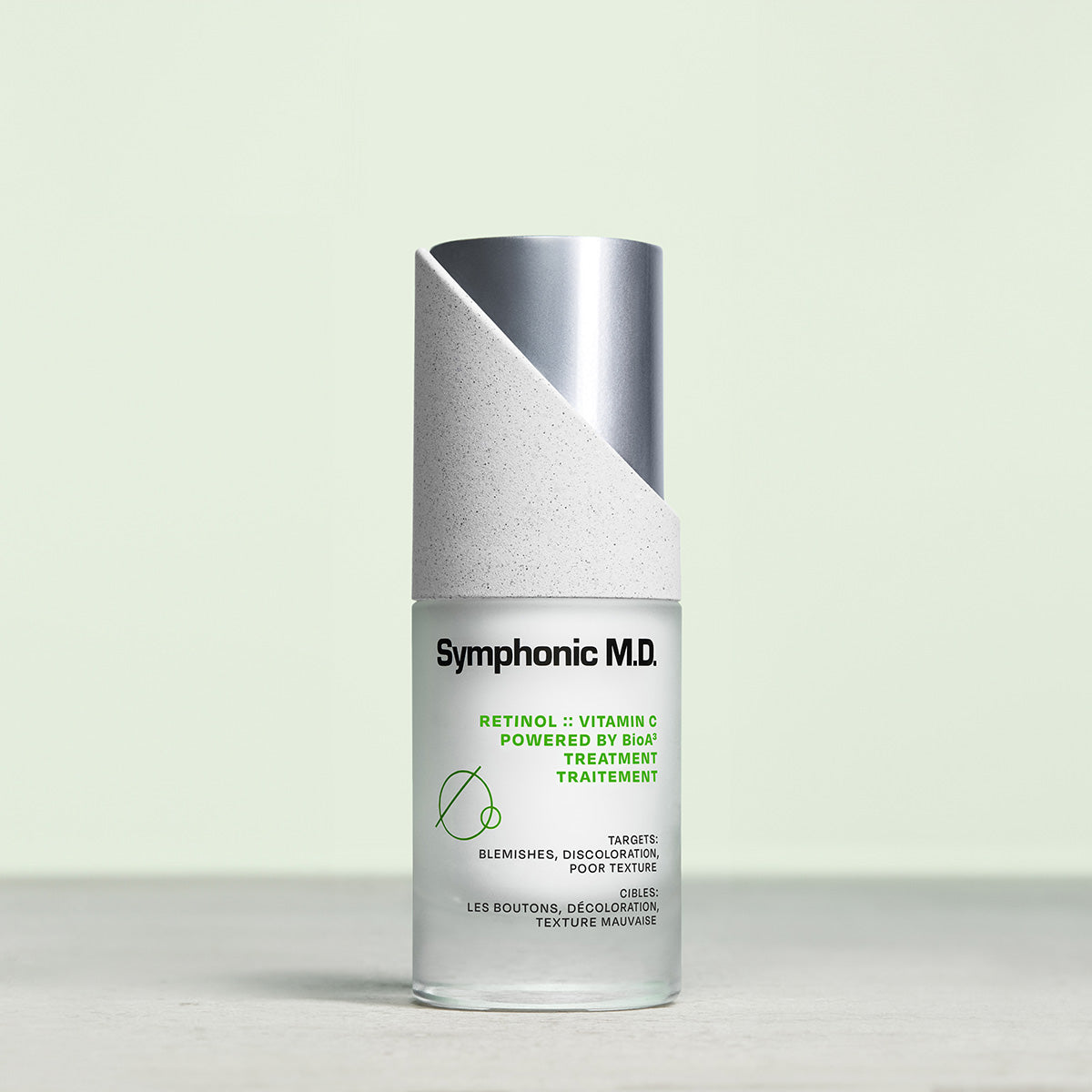
Retinol :: Vitamin C
How to use retinol and vitamin C together
Now you know that you don't have to choose between retinol and vitamin C: you can use them together! However, it's important to understand how to combine them for the best results if you’re using them in separate skincare products.
Use vitamin C in the morning
Vitamin C is most effective during the day. Its antioxidant effects protect you from sun damage, so it's best worn during daylight hours, in combination with an SPF moisturizer.
Vitamin C serums have the strongest effect, but they also carry the highest risk of a skin reaction. A vitamin C moisturizer can be a gentler choice for sensitive skin, or if you plan to layer several active ingredients.
Use retinol at night
Retinol is best used at night, so that it has time to work on the skin. Sunlight makes retinol less effective … and retinol can make you more prone to sunburn. If you have to use retinol during the day, make sure to wear sunscreen to minimize potential sunburn.
Just like with vitamin C, retinol serums are the most powerful option — with the highest risk of side-effects. It's particularly important to follow retinol serums with a moisturizer, or use a deeply hydrating retinol moisturizer instead, to minimize skin irritation.
Use a combination product
If you want to save time and reduce the risk of irritation, you can try using a combination vitamin C and retinol product.
The new Retinol :: Vitamin C Powered by BioA3 moisturizer from Symphonic M.D.'s range combines the best of both ingredients with deep hydration. Instead of using separate serums in your morning and evening skincare routine, you only have to use this moisturizer once. Best of all, since it's a moisturizer, your skin is protected from any potential irritation.
Our revolutionary moisturizer allows you to reap all the benefits of both retinol and vitamin C at the same time.
Start slowly
Start with a small amount of a low-dose product at first, especially for retinol.
In the beginning, it’s advised to only use retinol every other day. You can gradually build up your frequency, dosage, and amount of product as your skin gets used to it.
Most people find that their skin adjusts to vitamin C more quickly, although you should still start slowly and monitor how your skin responds.
If you opt to use our Retinol :: Vitamin C Powered by BioA3 Treatment, you can jump start the way you use these ingredients much quicker than with the usual retinol or Vitamin C products. Clinical testing has shown that our revolutionary moisturizer has zero documented side effects when used over an 8 week period twice per day, even when used on sensitive and damaged skin.
Use sunscreen
Both retinol and vitamin C can make your skin more sensitive to sun damage and sunburn. Always wear an SPF moisturizer or sunscreen during the day, and wear protective clothing if you're going to spend a lot of time in the sun.
How not to use retinol and vitamin C
Retinol and vitamin C have transformed many people's skin. However, there are some bad habits to avoid — otherwise you risk irritating your skin and slowing down your progress.

At the wrong time
Vitamin C and retinol come in similar products that are applied in similar ways, but the timing makes a difference. It's best to apply vitamin C in the morning, when it can protect your skin from the sun; while retinol is safer and more effective at night.
The only exception is if you're using a combined product, like the Retinol :: Vitamin C Powered by BioA3 moisturizer. Then you can apply the moisturizer at any time of day.
With AHAs
Layering vitamin C or retinol with other active ingredients can cause skin irritation. Not every ingredient works as well together!
In particular, you should avoid using alpha-hydroxy acids (AHAs), such as lactic or glycolic acid, while you're using retinol or vitamin C. If you want to make these part of your skincare routine, only use them every few days and in small doses.
Should I use retinol and vitamin C alone or combined?
Everyone's skin is different — so your skincare routine and choice of products should be different, too.
If you've never tried retinol or vitamin C before, then you might prefer to test them individually first. That way, you'll be able to see how each ingredient affects your skin on its own. If you have sensitive skin, it's a good idea to patch test each ingredient separately before testing out products on your face, too.
On the other hand, you can jump straight to using a combination product like our Retinol :: Vitamin C Powered by BioA3 moisturizer. You'll get the same results, with less work.
The bottom line
Vitamin C and retinol are both powerful active ingredients in skincare. Vitamin C protects the skin from damage and makes it brighter, while retinol changes the skin on a cellular level to look younger and clearer.
However, you can get the best results by combining vitamin C and retinol. Look for effective but hydrating products, like the new combination Retinol :: Vitamin C Powered by BioA3 Treatment from Symphonic M.D.
